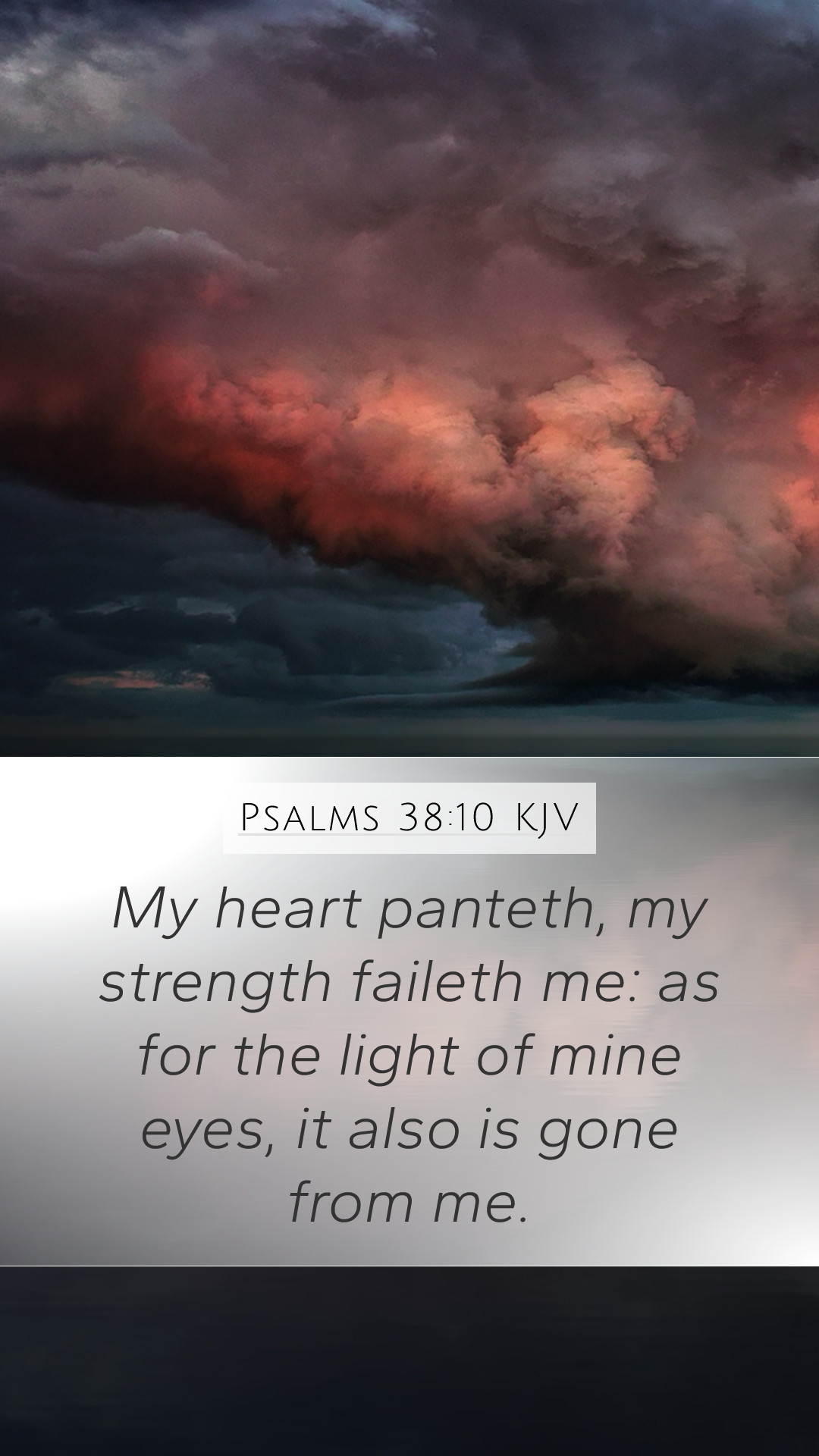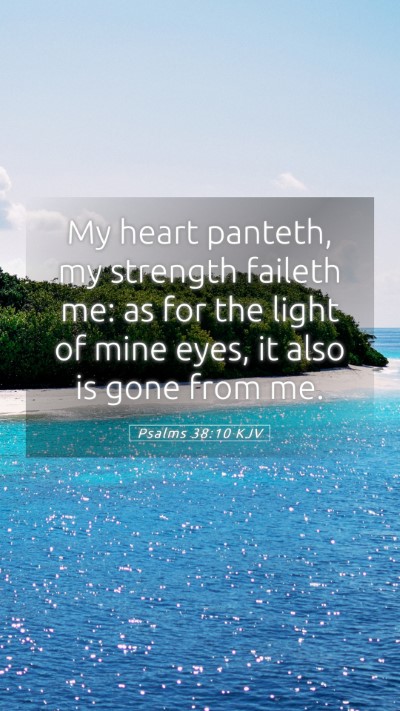Understanding Psalms 38:10
Psalms 38:10 states: "My heart pants, my strength fails me; as for the light of my eyes, it also has gone from me." This verse captures a deep sense of distress and despair, revealing both a physical and emotional struggle. In this analysis, we will explore the meanings of this scripture through insights from renowned public domain commentaries including those by Matthew Henry, Albert Barnes, and Adam Clarke.
General Overview
The verse serves as an expression of the psalmist's anguish. The heart, often symbolic of emotion and will, is described as "pants," indicating acute anxiety or longing. The failure of strength points to a loss of vitality, possibly due to affliction or sin. Furthermore, the "light of my eyes" symbolizes clarity and joy, which is fading, reflecting overall hopelessness.
Bible Verse Meanings
This section delves into the Bible verse meanings. The psalmist's heart imploringly requests relief from burdensomeness and despair, indicative of the human condition under suffering. The articulation of weakness may also hint at a broader spiritual malaise.
Insights from Matthew Henry
According to Matthew Henry, this verse emphasizes the overwhelming nature of sorrow that confronts the believer. He notes that the heart's panting symbolizes both internal distress and a yearning for divine intervention. The failing strength signifies the toll that sin and suffering can take on an individual’s spiritual and physical health.
Insights from Albert Barnes
Albert Barnes reinforces that the imagery of heart failure is associated with the burden of sin and compunction of conscience. He interprets the "light of my eyes" as the absence of joy and clarity, linking it to divine displeasure or judgment. His commentary suggests that such lament is a pathway to repentance and restoration.
Insights from Adam Clarke
Adam Clarke offers a psychological lens, suggesting that the verse reflects a moment of vulnerability where the psalmist feels abandoned and desolate. Clarke notes that these expressions of despair invite readers to contemplate their own emotional battles, pointing toward a need for divine consolation.
Application of Psalms 38:10
In applying this verse to daily life, one can find assurance in knowing that cries of desperation are acknowledged by God. This serves to encourage those who feel similarly burdened, suggesting that expressing weakness is an important part of the faith journey.
Bible Verse Interpretations
Examining Bible verse interpretations, we discover that Psalms 38:10 connects personal anguish with broader spiritual truths. The inherent vulnerability shared in this passage transcends the individual, inviting communal empathy and support, especially in Bible study groups.
- Historical Context: Understanding the conditions under which the psalm was written enhances comprehension. Written in times of distress, this psalm reflects the realities of human suffering.
- Symbolism: The "light of my eyes" has profound connotations, often linked to the presence of God or spiritual insight, reinforcing the belief that losing this light equates to separation from divine favor.
Bible Study Insights
Readers engaging in Bible study insights will find this verse particularly helpful in discussions around the themes of sin, repentance, and divine mercy. It sets the stage for exploring how emotions relate to spiritual health and how community support can be a source of strength.
Related Bible Cross References
- Psalms 22:14: "I am poured out like water, and all my bones are out of joint." This verse captures the theme of physical and emotional suffering.
- Psalms 31:9-10: "Have mercy on me, O LORD, for I am in trouble; my eye is wasted from grief, my soul and my body also." This expresses a similar sense of despair.
- Lamentations 3:17: "My soul is bereft of peace; I have forgotten what happiness is." The connection to loss of joy is evident here.


